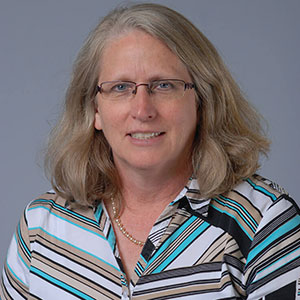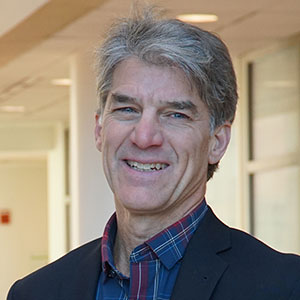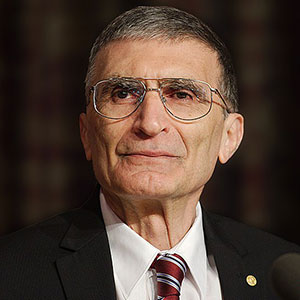Top reviewers at ASBMB journals
In the world of scientific publishing, reviewers work diligently behind the scenes. They dedicate their time and expertise to carefully evaluating research manuscripts, offering timely and insightful feedback and constructive criticism to authors and maintaining high standards.
During this Peer Review Week, the chief editors of the journals published by the American Society for Biochemistry and Molecular Biology have set out to give these hardworking scientists the recognition they deserve.
The leaders of ASBMB journals — the Journal of Biological Chemistry, Journal of Lipid Research and Molecular & Cellular Proteomics — have always been committed to building a strong and engaged community of reviewers.
Alex Toker is the associate director for the Cancer Research Institute at Beth Israel Deaconess Medical Center and a professor of pathology at Harvard Medical School. He’s also been editor-in-chief of JBC since 2021.
“The JBC is quite unique, in that manuscripts are reviewed by over 600 editorial board members who are formally invited to join the board,” Toker said. “We extend our heartfelt gratitude for their expert service in reviewing manuscripts. The journal’s success is inextricably linked to the talent, expertise and vision of the active scientists on its editorial board who provide the majority of these reviews.”
JLR has two editors-in-chief. Kerry-Anne Rye is a research professor, head of the Lipid Research Group and deputy head of research at the University of New South Wales School of Medical Sciences. Nicholas O. Davidson holds professorships at Washington University in St. Louis’ departments of medicine and developmental biology.
In a joint statement, Rye and Davidson said that the hard work of reviewers “has enabled us to maintain our goal to provide authors with high-quality and timely reviews. Our goal is to maintain a nine-day time to first decision and a 14-day turnaround for manuscripts that enter full review.”
Below are just a handful of reviewers, selected by the editors, who have consistently demonstrated their commitment to the scholarly community and have played a significant role in elevating the quality of published research. While we acknowledge these exceptional individuals, the editors emphasized, we must also extend our gratitude to all reviewers who diligently devote their time and expertise to ensure that research published in ASBMB journals meets the highest standards of scientific excellence.
Journal of Biological Chemistry

Derek Abbott is a physician–scientist at Case Western Reserve University, where his lab mines autoinflammatory disease genetics to unlock novel targets for pharmaceutical intervention in inflammation. His first manuscript as a graduate student was published in JBC, and his lab continues to submit their work to the journal. He said that he’s “thrilled and humbled to be an editorial board member at this historic journal.” He has been on the board since 2016.

Millie Georgiadis is a professor and vice chair of research at Indiana University School of Medicine. She specializes in X-ray crystallography and complementary biochemistry of systems involving protein-nucleic acid interactions. “Especially in these times, it is important to focus on high standards for our science to ensure that we are making meaningful and impactful contributions,” Georgiadis said, adding that she approaches each manuscript she reviews with “an open mind and spends sufficient time to fully appreciate the scientific story and the details that support that story,” because, as an author, she appreciates “thoughtful comments from reviewers that will help me improve a manuscript.” Georgiadis has been a board member since 2021.

Birte Svensson is a professor at the Technical University of Denmark. Her main research interests are structure/function relationships and applications of multidomain carbohydrate active enzymes acting on starch, alginate and other dietary polysaccharide fibers, proteins and hydrocolloids in food and dairy. Svensson has been a member of the board since 2014.

Matthew Kimber runs a structural biochemistry lab at the University of Guelph. His research focuses on the architecture, structure, mechanisms and diversity of the proteins that assemble bacterial cell-surface polysaccharides. He also has worked on a variety of other systems, including carbonic anhydrases, carboxysomes, steroid degradation pathways and bacterial cell-division proteins. He has been on the board since 2020.

Paul Shapiro is a professor and associate dean at the University of Maryland’s pharmacy school. His team is pursuing novel approaches to modulate the functions of protein kinases involved in cancer and inflammatory disorders. Shapiro’s research, conducted in collaboration with colleagues at the pharmacy and medical schools, has led to the discovery of novel kinase inhibitors now in phase II clinical trials for the treatment of acute respiratory distress syndrome. He has been a JBC editorial board member since 2013 and said he is grateful to be a part of a rigorous peer-review process that strives to be fair and constructive.

Aziz Sancar is a physician-scientist at the medical school of the University of North Carolina at Chapel Hill. His lab specializes in DNA repair, cell-cycle checkpoints and circadian clock. In 2015, he won the Nobel Prize in Chemistry along with Tomas Lindahl and Paul L. Modrich for their mechanistic studies of DNA repair. He has been a loyal supporter and advocate for JBC; in fact, he has published more than 100 papers in the journal and contributed a 2021 “Reflections” article about that milestone. He has been on the board since 2014.
Journal of Lipid Research

David Ford is a professor and directs the Center for Cardiovascular Research at St. Louis University. His lab studies vascular disease and organ failure. More specifically, it investigates the biology of lipid oxidation products with a focus on endothelial and epithelial dysfunction during sepsis and in response to environmental inhalation injury. He has been on the board since 2021.

Scott M. Gordon is an assistant professor at the University of Kentucky College of Medicine, where he established his laboratory in the Saha Cardiovascular Research Center in 2018. His research program is focused on various aspects of lipoprotein metabolism in cardiovascular and metabolic diseases. Specifically, his team is exploring mechanisms involved in dietary lipid absorption that impact metabolic health and the roles of plasma lipoproteins in atherosclerosis. Recently, Gordon was identified as a “Rising Star in the Lipid Field” by JLR, and he was a finalist for the Irvine H. Page Junior Faculty Research Award from the American Heart Association. Gordon has served as an ad hoc reviewer for over 20 different journals and is currently a junior associate editor for JLR.
Molecular & Cellular Proteomics

Bing Zhang is an internationally recognized leader in computational cancer proteogenomics at Baylor College of Medicine. His lab is developing informatics solutions that help translate cancer genomic and proteomic data into biological and clinical insights. Studies by his team have demonstrated the power of proteogenomics in advancing cancer biology, diagnosis and treatment. He has been on the board since 2018.
Enjoy reading ASBMB Today?
Become a member to receive the print edition four times a year and the digital edition monthly.
Learn moreGet the latest from ASBMB Today
Enter your email address, and we’ll send you a weekly email with recent articles, interviews and more.
Latest in People
People highlights or most popular articles

Simcox wins SACNAS mentorship award
She was recognized for her sustained excellence in mentorship and was honored at SACNAS’ 2025 National Conference.

From humble beginnings to unlocking lysosomal secrets
Monther Abu–Remaileh will receive the ASBMB’s 2026 Walter A. Shaw Young Investigator Award in Lipid Research at the ASBMB Annual Meeting, March 7-10 in Washington, D.C.

Chemistry meets biology to thwart parasites
Margaret Phillips will receive the Alice and C. C. Wang Award in Molecular Parasitology at the ASBMB Annual Meeting, March 7-10 in Washington, D.C.

ASBMB announces 2026 JBC/Tabor awardees
The seven awardees are first authors of outstanding papers published in 2025 in the Journal of Biological Chemistry.

Decoding how bacteria flip host’s molecular switches
Kim Orth will receive the Earl and Thressa Stadtman Distinguished Scientists Award at the ASBMB Annual Meeting, March 7–10, just outside of Washington, D.C.

Thiam elected to EMBO
He was recognized during the EMBO Members’ Meeting in Heidelberg, Germany, in October.

